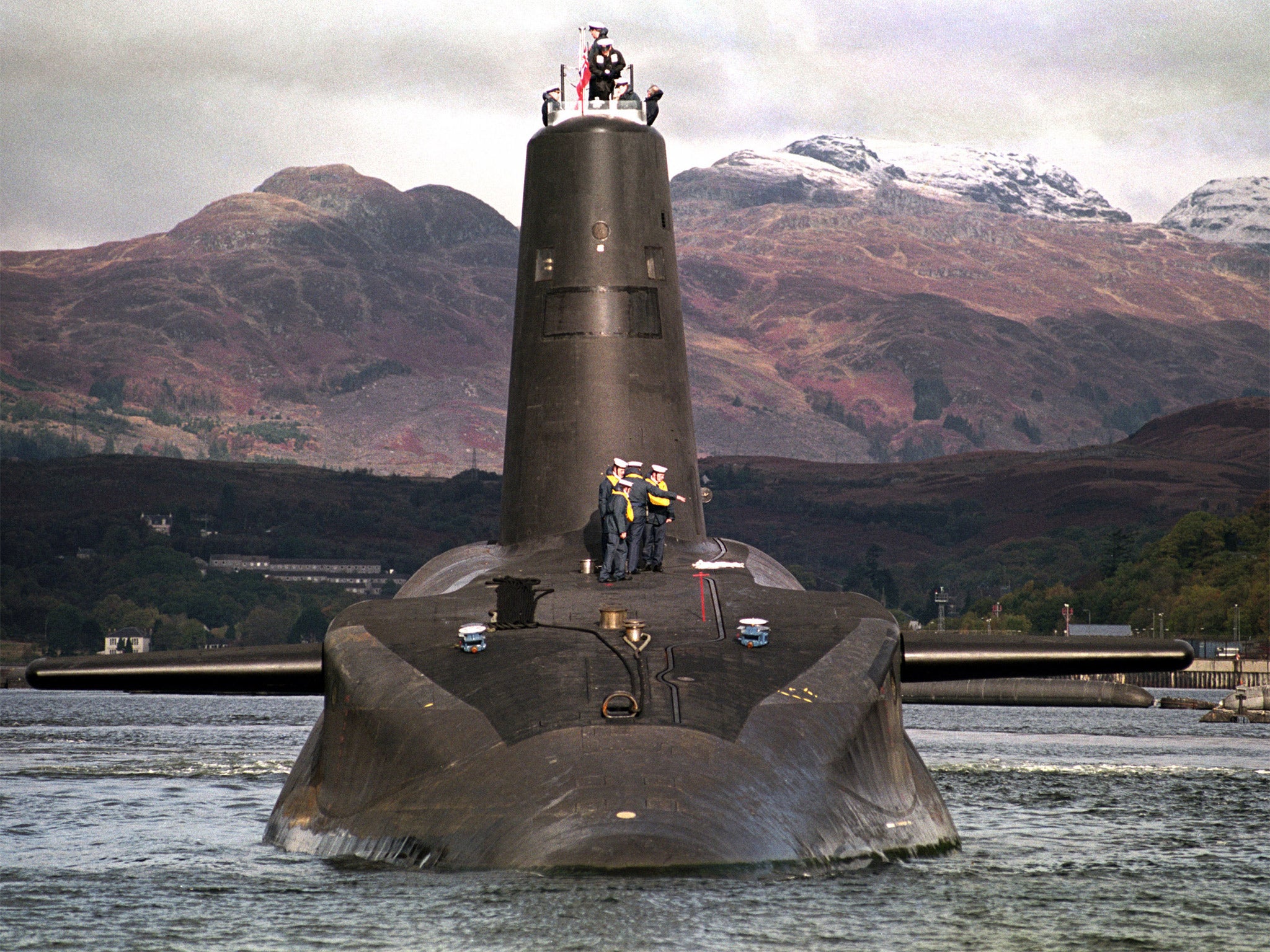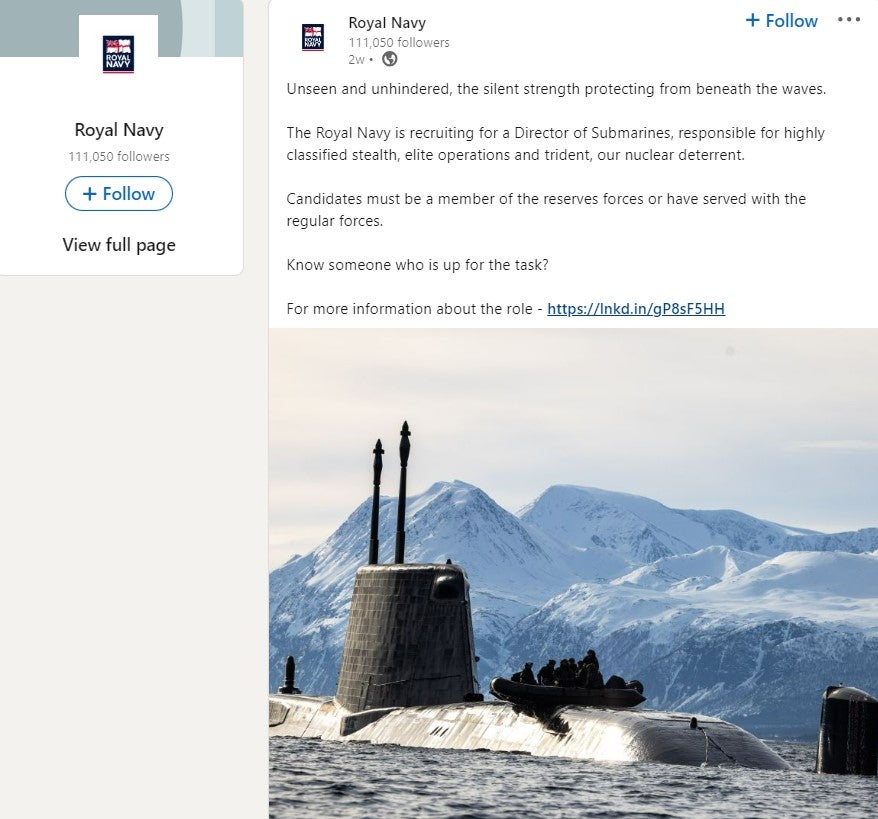Royal Navy forced to recruit for tob job on social media
The advertisement was described as ‘utterly shameful’ and ‘unprecedented’ by naval sources

Your support helps us to tell the story
From reproductive rights to climate change to Big Tech, The Independent is on the ground when the story is developing. Whether it's investigating the financials of Elon Musk's pro-Trump PAC or producing our latest documentary, 'The A Word', which shines a light on the American women fighting for reproductive rights, we know how important it is to parse out the facts from the messaging.
At such a critical moment in US history, we need reporters on the ground. Your donation allows us to keep sending journalists to speak to both sides of the story.
The Independent is trusted by Americans across the entire political spectrum. And unlike many other quality news outlets, we choose not to lock Americans out of our reporting and analysis with paywalls. We believe quality journalism should be available to everyone, paid for by those who can afford it.
Your support makes all the difference.The Royal Navy was forced to advertise for a top job on social media in a move described as “utterly shameful” by military sources.
Navy chiefs posted the advertisement for the £150,000-a-year rear-admiral position on LinkedIn in December as it struggled to fill the role internally.
It comes as former defence secretary Ben Wallace warned Britain’s armed forces were facing a recruitment crisis because Generation Z was not signing up.
One former senior submariner said the post was “utterly shameful” and the only person who applied was an unqualified weapons engineer commodore when it was first posted, according to The Times.
The chosen candidate would replace Rear-Admiral Simon Asquith as director of submarines and would be responsible for “elite operations” and the nation’s nuclear deterrent.

Another source said the advertisement was “unprecedented” and it was down to the Navy being unable to find a suitable candidate internally.
One user commented on the job advertisement: “I’ll do it - but is the advertisement a scam. Surely not how the appointment is made.”
Another former submariner who worked in the Navy for 35 years added: “Nice little bit of intelligence I am sure our Russian friends will have noted!”
It is understood the position is yet to be filled, although the Royal Navy is still accepting applicants. A Royal Navy spokesperson said: “It would be inappropriate to comment ahead of any appointment being made.”
On Friday, Ben Wallace, who stepped down last August, said Britain needed to “do things differently” to recruit soldiers and other service members.

“Armed forces across the West, not just Britain, across Europe, America have a recruitment challenge. Generation Z is not joining the armed forces in the way my generation did,” Mr Wallace said.
The Royal Navy was forced to decommission two warships - HMS Westminster and HMS Argyll - because it had too few sailors to staff them.
In the 12 months to March, MoD figures showed that the Navy, which has 29,000 full-time recruits, performed the worst out of the three armed services for recruitment.
Intake for the Navy and Royal Marines dropped 22.1 per cent compared with the previous year, while the RAF dropped by almost 17 per cent and the Army by nearly 15 per cent.
Join our commenting forum
Join thought-provoking conversations, follow other Independent readers and see their replies
Comments